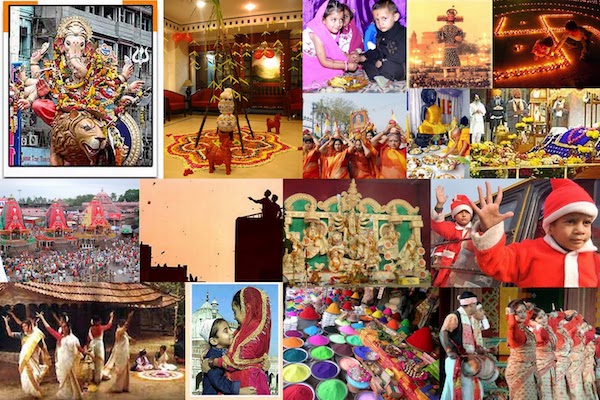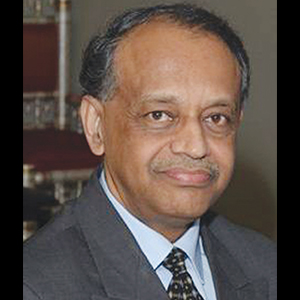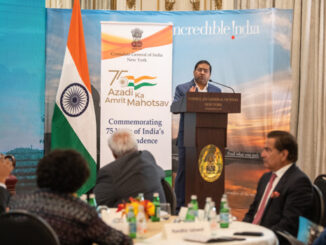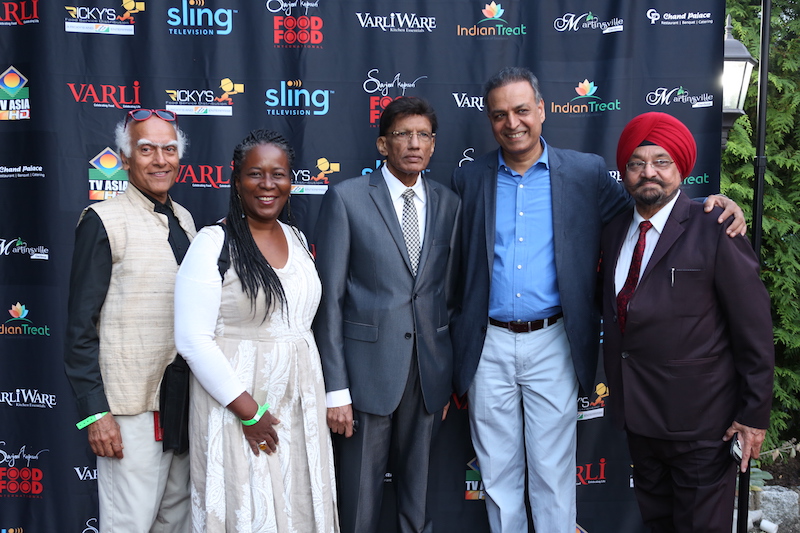

The ultimate goal of the agenda is to transform the pluralistic and democratic India to a Hindu nation where the majority religion will have the pre-eminence and minorities are relegated to subservient role probably being denied equal protection or opportunities, that too, to a substantial segment of the population.
As the Diaspora is celebrating 72nd Independence Day of India, one of the questions that arises in minds across the globe is whose independence and freedom is actually being celebrated on August 15, 2018. Obviously, it is not the freedom of Akbar Khan, who was lynched by a mob in Rajasthan on suspicion of cattle smuggling, or Gauri Lankesh, a journalist who was shot by a Hindutva fanatic who brazenly stated that “she was anti-Hindu and had to be killed” , or Rohit Vemula, a Dalit Scholar who was driven to commit suicide because of the entrenched anti-Dalit mindsets and practices still prevalent across the nation.
In the case of Akbar Khan, instead of immediately rushing him to the hospital, the police appeared to have given priority in arranging the transportation of the cattle to a cow shelter and thereby denying him timely medical care that could have saved his life. It only appears to have given fodder to those who believe that it is safer to be a cow in India than a human being. What happened to their right to life and liberty? Why has the state once again failed to protect their rights as equal citizens? Who empowered these marauding thugs to conduct street-level justice to promote a sectarian ideology? What is happening to the soul of Indian democracy?
After four years of BJP rule, lynching has become the national pastime, mobocracy rules the day. The latest attack in Rajasthan came days after India’s Supreme Court requested the government to enact new legislation to end an increase in mob violence and lynching that have reportedly killed more than dozen people accused of cattle theft or eating beef.
‘The basis for democracy is Liberty,’ said Aristotle. However, today, the Institutions that were built to safeguard that principle are under duress. India is one of the most diverse nations in the world. The country has its population 80% Hindu, 14 % Muslim, Sikhs, and Christians about 2 % each. It has Castes and sub-castes, many languages and dialects and varying customs and traditions including different dress codes and dietary habits. That is the crossroad where India is today with Narendra Modi in power disregarding the aspirations of the minorities and diminishing the power structures that provided political and social equilibrium in the last seven decades or more.
Despite these variances, India has not only survived but prospered as a nation under a Nehruvian vision and the constitutional umbrella engineered by the great B.R. Ambedkar. Together, they have built Institutions that guaranteed life and property of every Citizen regardless of their background or circumstances, providing an opportunity to climb up the ladder of success and economic prosperity. Thanks to the economic liberalization policies initiated by Rajiv Gandhi and Manmohan Singh, former Prime Ministers, India has surpassed France as the sixth largest economy in the world. What we should have witnessed is a continuum of those policies and practices resulting in more openness and tolerance, and yet the opposite seems to have taken place.
In this week, we may witness widespread celebrations of India’s independence that will be held in many cities across the country. However, one may hear very little in regard to whether the hard-fought freedom by the founding fathers of modern India is in danger of being extinguished!
The Cultural and Religious organizations that provide forums for these events appear not to be concerned about the ever-diminishing freedom of India’s citizens or weakening of its institutions. They rather keep repeating the same narrative of India’s history and heritage and remind everyone on a regular basis of our noble ancestry. Compounding that, many of these same leaders may not only fail to mention the opportunities and privileges they were accorded here in their adopted land but often make even derisive comments about the ‘decadent culture’ of the west as if we were forced to migrate to this part of the world.
In these days, Embassies and Consulates of India have been utilized as propaganda machinery for the ruling party in India. In the name of promoting soft power, they have been forced to underwrite programs with intrinsic religious themes or one that would fit their nationalist agenda. Even English is often being banished at official functions to the dismay of the attendee population that always include non-Hindi speaking people or the people who are born and brought up in this country.
Indians have done well with the open electoral process in the US having elected four of their own to the House of Representatives and another one to the Senate. Although most of them ascribe to policies considered far left of the center and often very strident on issues dealing with Civil Rights, Social Policies or Immigration, they rarely criticize the Government of India for any similar wrongdoings such as violations of human rights or religious freedom and seem reluctant even to raise these issues when meeting with the Prime Minister or other officials.
Many of the Desi civil rights organizations in this country that would make loud protests, justifiably so, at the slightest discrimination or physical attack on an Indian, remain largely silent to any level of atrocities committed on vulnerable groups in India. Some of them act as if they are mouthpieces of the BJP regime often defending actions that would violate the basic values and principles of the democracy where we all live. As a minority, we demand equal opportunities and protection from the U.S. government, however, most, remain reluctant to hold Modi regime accountable to the same standard! It is quite a paradox!
Many liberal critics of the Modi regime sincerely believe that his administration is run by a political dogma inspired by the RSS ideology. That ideology is based on a common thread promoted by the Sangh Parivar organizations and is called the ‘Hindu Nationalist agenda of BJP.’ The ultimate goal of the agenda is to transform the pluralistic and democratic India to a Hindu nation where the majority religion will have the pre-eminence and minorities are relegated to subservient role probably being denied equal protection or opportunities, that too, to a substantial segment of the population.
The constitution’s framers created a democratic system wherein the legislature would make laws, the executive would implement laws and be accountable to parliament, and an independent judiciary would interpret the laws. They also put in a system of checks and balances among these three organs of the state. However, over the years, these three organs of the state have pushed the boundaries of their relationship with one another. NDA has the majority in the Lok Sabha where they pass ordinary bills and then pass it on to Rajya Sabha as Money bills to circumvent their numerical impairment in that body. They also have shown utter disregard to deliberate on essential bills bypassing various parliamentary committees.
Agencies such as India’s Central Bureau of Investigation (CBI), the Enforcement Directorate of the Finance Ministry, the Tax authorities and even local police forces are often accused of doing Government’s bidding. The opposition has charged that their leaders have often been targeted for harassment which they consider as a political vendetta for expressing their opinions critical of the government.
India has witnessed an extraordinary news conference by four members of the Collegiums revealing the skew in the allocation of work and lack of transparency by Dipak Misra, the Chief Justice of India. According to Justice Chelameswar, recently retired, “we tried to persuade the CJI to take steps but failed. Unless the Institution of Supreme Court is preserved, democracy won’t survive in the country”. There is indeed a cloud still casting a pall over the recent verdicts on Loya and Mecca Masjid cases.
Since the Narendra Modi government came to power, access to information through the Right to Information (RTI) Act has diminished greatly, according to the annual report of the Central Information Commission (CIC) for 2014-15. “Every Indian deserves to know the truth, and the BJP wants to hide the truth. The BJP believes the truth must be hidden from the people and they must not question people in power. The changes proposed to the RTI will make it a useless Act,” Rahul Gandhi said recently on the Twitter.
Shiv Sena, a member of the NDA coalition has recently dubbed the election commission as a ‘Tawaif’ (Mistress) of a political party. Coming from an ally, it only amplifies the long-held suspicion by many that the election commission has become a tool increasingly in the hands of the BJP government. “People are losing faith in the voting system,” Shiv Sena spokesperson Sanjay Raut told ANI.
Freedom of Conscience is fundamental to all other freedoms. It is innate and God-given. It is guaranteed under the Indian Constitution. However, it is open season on those who freely exercise it. Professor M.M Kalburgi and Govind Pansare were active in combating the organized mysticism and cultures of gullibility widespread at the “popular” level. Their professed independence and determined efforts to alert the common man from the hideous agenda of the so-called religious godmen cost them their lives.
Media is dubbed as the fourth estate and has a vital role to play in a vibrant democracy. However, they are increasingly fearful for their existence if they do not toe the line of the Government. Many of these media outlets are bought out by the crony capitalists and have become the cheerleaders of the BJP agenda.
Academia has become another favorite target of the Modi Government. BJP and its ilk have always hated Institutions like JNU where the free flow of ideas flourished, and lively debates on the pros and cons of contemporary issues were the order of the day. Today, the students and faculty in these revered institutions are intimidated, harassed and called anti-national for failing to toe Hindutva agenda line and are even charged with sedition. Modi Government has been openly hostile to civil society groups. It repeatedly denounces human rights and environmental activism as “anti-national” – a phrase that carries connotations of treason.
Religious freedom in India continued on a downward trend in 2017, said the United States Commission on International religious freedom’s annual report released recently. It said that although government statistics have indicated that communal violence has decreased over the past two years, during the year, Hindu-nationalists groups sought to “saffronize” India through violence, intimidation, and harassment against non-Hindus and Hindu Dalits” although Indian Constitution guarantees freedom of religion through article 25 and 26. Since the ascendance of Modi as the Prime Minister, tensions between Muslims and Hindus have increased in many parts of the country. Modi’s rise has further pushed Muslims towards marginalization.
Christians who constitute around 2% of the population are also under severe stress with many of their places of worship under attack, increased re-conversion efforts by Hindu fundamentalist organizations, removal of Christmas Day and Easter Day from the National Calendar and by the cancellation of FCRA of thousands of Christian charities effectively putting them out of business, the Saffron brigade appears to be questioning the very India ness of every Christian in India.
“Democracy is under threat in India with “artists, writers and rationalists” being attacked in some form or the other, says acclaimed actress and filmmaker Nandita Das who feels conservatives and right-wing groups are increasingly becoming country’s moral police citing the effort to block the release of the movie ‘Padmavati.
Since the ascension of BJP to power, there is one in a series of incidents that has revealed the mindset of a party, on the one hand, urging Dalits to unite under the flag of Hindutva but on the other, setting up a delimiter to what extent they can be included; first, the ban on the Ambedkar-Periyar Study circle of IIT Madras, then the burning alive of Dalit children in Haryana and finally General VK Singh allegedly referring to them as animals.
The Bharatiya Janata Party’s victory in the Lok Sabha elections of 2014 has ushered in an unprecedented attack on India’s democracy and injected new elements of intolerance and authoritarianism into the lives of people living in the country. Martin Luther King Jr. once said: Our lives begin to end the day we become silent about things that matter’. The question is: will the Diaspora continue its long-held silence!
(The author is a former Chief Technology Officer at the United Nations and Vice-Chairman of the Indian Overseas Congress, USA)





Be the first to comment